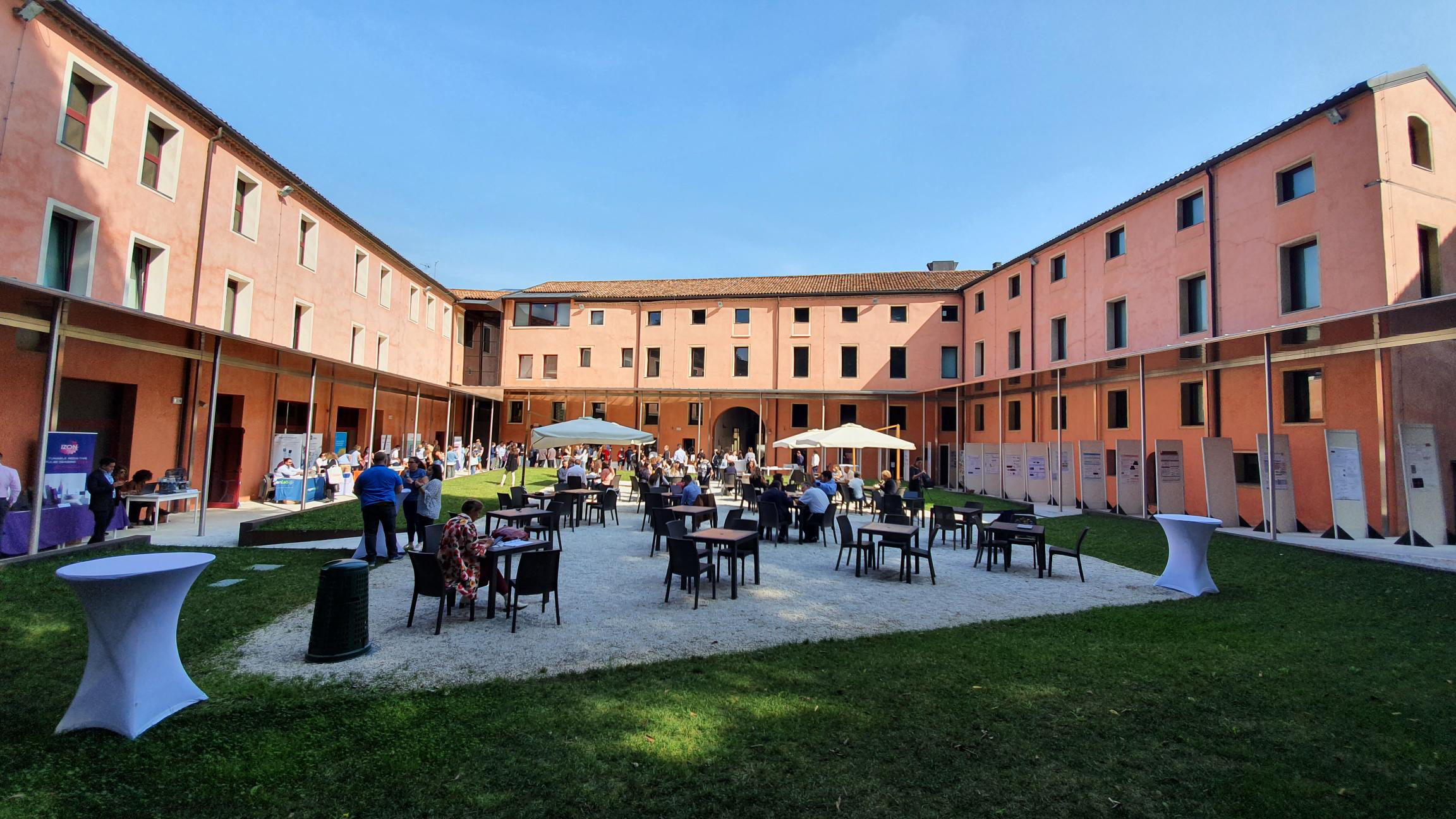
The BigBrain Workshop will take place at the beautiful Palazzo della Salute located right in the centre of Padua in the immediate vicinity of the university.
Address:
Palazzo della Salute
Via S. Francesco, 90, 35121 Padova PD, Italy
credit: Romai Mandula Kennel, https://commons.wikimedia.org/wiki/File:Padova.JPG
Padua
Welcome to Padua, Italy, the picturesque city nestled in the heart of the Veneto region and the perfect destination for the upcoming BigBrain Workshop. Known for its rich history, stunning architecture, great science, and vibrant cultural scene, Padu offers an inspiring backdrop for intellectual exchange and collaboration.
Home to one of the oldest and most prestigious universities in the world, the University of Padova, founded in 1222, Padua boasts a long tradition of academic excellence and innovation. The city's historic center is a UNESCO World Heritage Site, featuring iconic landmarks such as the Scrovegni Chapel with its renowned frescoes by Giotto, the majestic Palazzo della Ragione, and the striking Prato della Valle, one of the largest city squares in Europe.
In addition to its rich cultural heritage, Padua is a hub of scientific research and discovery. The city is home to to the Padova Neuroscience Center and further research institutions and cutting-edge laboratories, making it an ideal setting for the BigBrain Workshop. Participants will have the opportunity to engage with leading experts in the field, exchange ideas, and explore potential collaborations against the backdrop of Padua's inspiring surroundings.
With its convenient location near Venice and easy access to major transportation hubs, including Marco Polo Airport and Padua's own railway station, the venue offers convenience and accessibility.
Join us in Padua for an unforgettable scientific experience, where academic excellence meets cultural heritage, and where ideas flourish amidst the beauty of this historic city. We look forward to welcoming you to Padua for an enriching and productive workshop.
 Old Courtyard |
 Anatomical Theatre in the Bo Palace |
University of Padua
The University of Padua was established in 1222, after a group of students and teachers decided to come here from Bologna. They set up a free body of scholars, who were grouped according to their place of origin into nationes, in which students approved statutes, elected the rettore (rector, or chancellor) and chose their teachers, who were paid with money the students collected. Defending freedom of thought in study and teaching became a distinctive feature which today lives on in the University motto: Universa Universis Patavina Libertas.
The introduction of empirical and experimental methods together with the teaching of theory marked the dawn of a golden age. In the 16th and 17th centuries, Padua became a workshop of ideas and the home to figures who changed the cultural and scientific history of humanity. They included Andrea Vesalio, who founded modern anatomy, as well as the astronomer Copernicus, and Galileo, who observed the skies here.
Padua also vaunts the world’s first university botanical garden and a permanent anatomical theatre, which was built by Girolamo Fabrici d’Acquapendente. William Harvey, who became famous for describing the circulation of the blood, studied in Padua, and in 1678 Elena Lucrezia Cornaro Piscopia became the first woman in the world to be awarded a university degree.

